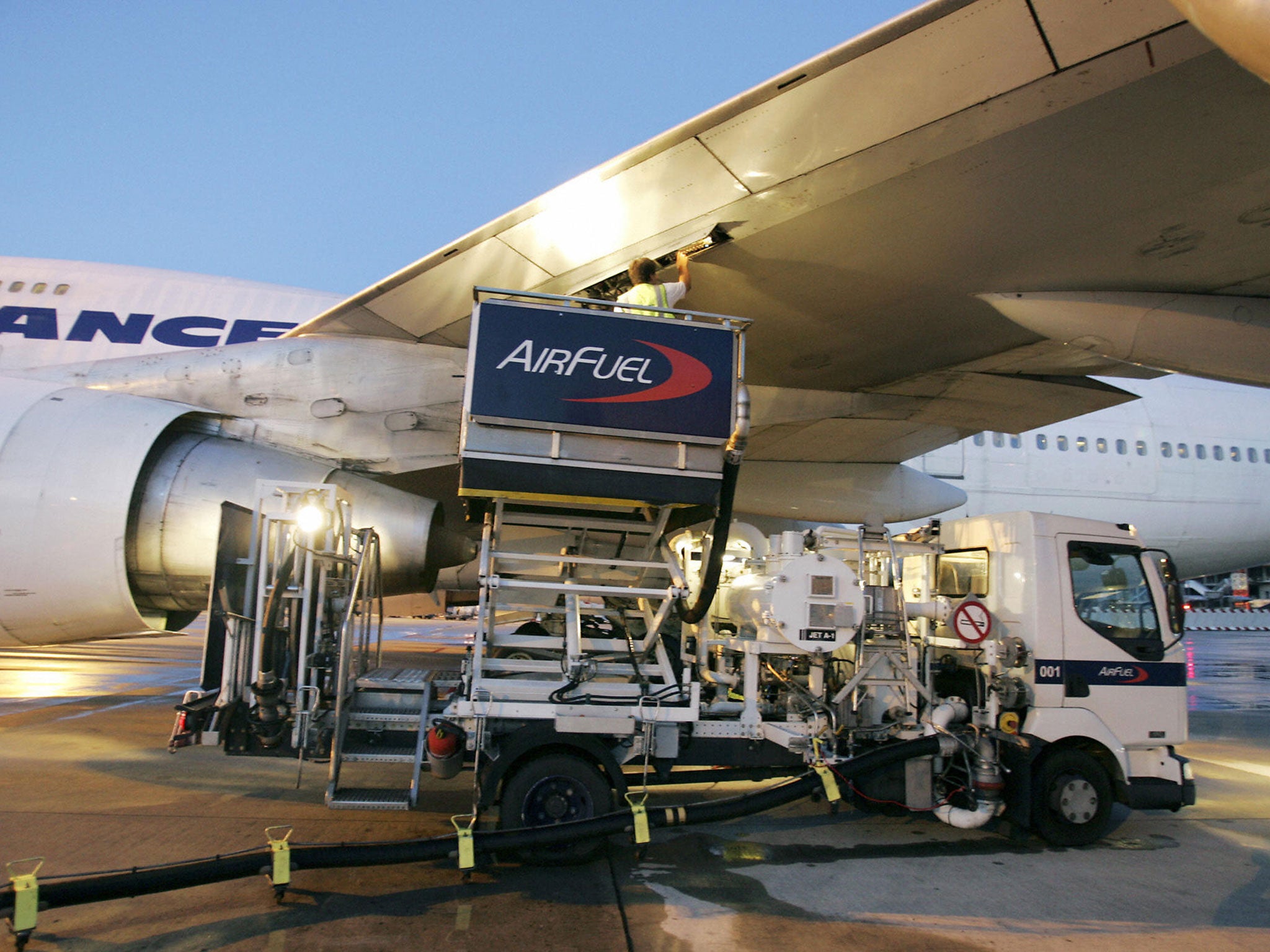Simon Calder explains: Fuel surcharges
Video: Simon Calder, The Independent's senior travel editor, unpacks fuel surcharges - why they exist and why they aren't getting cheaper

Let me explain how fuel surcharges began, and why they won't be shrinking anytime soon.
Some airlines are mighty keen on separating out the costs involved in getting a flight aloft. It seems to suit them to ascribe a large slab of the fare to a category that might be defined as "not our fault - we’re just collecting money for someone else". In the case of a couple of fees, this is not unreasonable. Government taxes such as Air Passenger Duty, and the Passenger Service Charge levied by airports, are passed straight on by the airlines. (That assumes you actually travel. If you are a no-show, then you may be able to retrieve some or all of the APD and PSC; otherwise the airline will keep these amounts and make a handsome profit out of you.)
But the fuel surcharge is seeking to separate out one of the many costs of an airline doing business. They became popular about nine years ago when the price of oil, and hence jet fuel, began to rise. I guess carriers wanted to put up fares to reflect their increased costs, and saw this as a way to imply that the rise was "nothing to do with us". For those of us who simply want to get from A to B, possibly via C, the way that airlines dress up their fares is largely irrelevant. To evaluate a particular flight, the figure that matters is the total ticket price, inclusive of everything.
Since fares fluctuate, and are decided by what the market is prepared to pay, it is likely that any reduction in fuel surcharge will be countered by an equal and opposite rise in the base fare. Now, a reasonable traveller might think that a spell of falling oil prices is just the time to eliminate fuel surcharges altogether, and start again from year zero. But one reason an airline might not be inclined to do so is because of the money they earn from fuel surcharges applied to "free" flights on frequent-flyer schemes. An example: a London-Hong Kong return next May with Avios, the British Airways scheme, requires a payment of £365. Of this, £71 goes to the UK government in APD; £45 to Heathrow; and a token £10 to Hong Kong. But the great majority of it, £239, is BA’s fuel surcharge. If the fuel surcharge fell to zero and the payment duly dropped to £126, then BA would lose millions.
Typically, if you fail to travel, an airline may refund "third-party" charges, but decline to refund the fuel surcharge - accentuating the sense that it is simply an element of the airline's fare.
Join our commenting forum
Join thought-provoking conversations, follow other Independent readers and see their replies
Comments
Bookmark popover
Removed from bookmarks